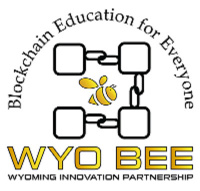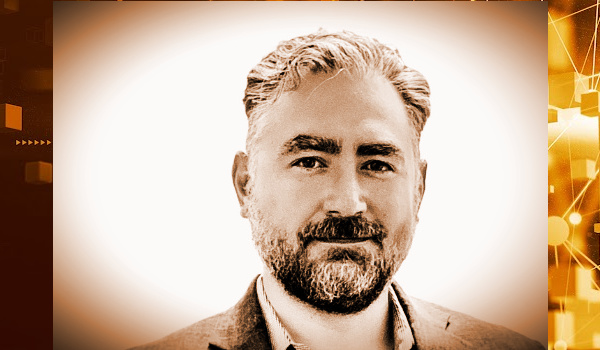By Mike Wilkins
Like so many other people shaping the conversation in the world of blockchain and digital currencies today, the route Jahon Jamali took to get involved was far from traditional.
Born in Iran and raised in Boston, Jahon worked in military intelligence for several years before getting hands-on experience with digital technologies as a small business owner and subsequently a startup founder. When his longtime friend and high school classmate John Sarson started Sarson Funds as a one stop shop for blockchain education, consulting and investments, Jahon signed on as a co-founder and built out the firm’s marketing operations and educational content. As an offshoot of that content, Jahon created the American Crypto Academy, which provides learning and training for financial advisors, asset managers and professionals looking to learn more about the technology behind the new digital economy.
DWN caught up with Jahon in April where we talked about what he’s learned from his fascinating past, and why he’s so bullish on blockchain and crypto as key components for future economic growth. We also talked about his longtime collaboration with the Digital Wealth News (DWN) leadership team and his involvement with the Wyoming Blockchain Education Initiative.
DWN: Jahon, what was your early background like?
JJ: “I grew up in Boston, where I went to Boston College High School. John Sarson and I were co-captains of the wrestling team. He went off to Notre Dame and started a career on Wall Street, I went to Johns Hopkins where I ended up on an ROTC scholarship. I interned on Capitol Hill, but after graduation I got involved with military intelligence as a human intel officer, and then ended up working for a defense agency. My focus there was on recruiting and building relationships with potential intelligence sources.
After a few years and the birth of my first child, I wasn’t sure if working in intelligence was something I wanted to do forever. So I left the military and took over my family’s automotive business, right in the middle of the Great Financial Crisis. I transformed their business into an entirely digital operation while going to graduate school at Babson at night.”
DWN: So what happened next? When did your entrepreneurial spirit really kick in?
JJ: “One thing I discovered while running the automotive business was that a lot of business software is really frustrating. I started tinkering with building my own technologies, and caught a bit of “Silicon fever.” So I did what any tech founder would do. I raised some funds and moved to San Mateo.
The first app I built was called “Catch My Car.” I was trying to get it off the ground while at the same time working in corporate development at Kapow, a middleware tech provider that was doing a lot of cool work with data extraction automation and open source intelligence. My startup failed, so I eventually headed back east where I found a niche market selling yoga mats for men. That venture ended up breaking even, but I was able to fund a yoga program at the New England Center for Homeless Veterans, which I am really proud of.
I then started another auto tech company called “Appraisal Lane” which helped dealers liquidate excess inventory. I took the team from 6 people to 160, and sold the company for $62 million in 2020 just before the pandemic hit. If there’s one thing I took away from those experiences, it’s how to foster growth with very little resources in a hostile environment where you need to convince people to go on a journey with you and your services, – which is similar in a lot of ways to when I was working for the government.”
DWN: So you walked away from auto tech a winner. Where did you go from there?
JJ: “Well, I was reunited with my old friend John Sarson. I started working with him wholesaling investments like ETFs and mutual funds. I understood the concept of “wholesale” from the automotive world but that was about it. It was a whole different ballgame. When John decided to start Sarson Funds, I dug in alongside him and it’s there that I really started developing a passion for blockchain and crypto.”
DWN: So what’s driving that passion? It’s a relatively new industry that’s already seen a lot of comers and goers. What’s keeping you engaged?
JJ: “When I think about crypto, I don’t see it as just a new asset class and I don’t see blockchain necessarily as a new technology. At its heart, it’s the same concepts as dual entry bookkeeping. But it’s an entirely new architecture, and an entirely new belief system that needs to be explained from the top down. That’s how you get to that “aha” moment, by getting people to understand the whole construct and make it relative, so they dive into areas of detail which interest them. You can’t force it on them by just selling them the product.
It reminds me a lot of working in the intelligence community. When it came time to get a source to turn, they already knew it was coming and were onboard with it.”
DWN: Crypto and blockchain both have their share of skeptics. What do you think can be done to help people understand better and overcome the fear and doubts?
JJ: “One thing I’ve found is that people in the crypto world are really good at marketing to themselves, but really bad at marketing to everyone else, especially people who don’t want to be bombarded by inside jokes and memes.
Plus the tech jargon makes it somewhat intimidating too. Like any belief system, which is what crypto really is, it needs to be articulated in the language of the people you’re trying to convert. Malcolm X may have said it best when he said “I’m gonna speak right down to earth in a language everyone’s gonna understand.” That’s just not happening now. You need to start with the underlying trust aspect and work from there.
For Americans especially, crypto aligns with “American values.” Bitcoin, for example, is in some ways as American as apple pie. Think of the US in the early days, and the expanding frontier, constantly going west. Bitcoin is now expanding the new digital frontier. Much like America in the early days, there’s no embedded aristocracy in the crypto ecosystem. I’ll go head to head with anyone who says it’s not American.”
DWN: What do you see as so transformational about cryptocurrencies?
JJ: “We spent the first 30 years on the internet finding ways to exchange information from peer to peer. But now we’re not just exchanging information, we’re exchanging value.
So what creates the value associated with a cryptocurrency? Think for a minute about how we started assigning value to precious metals. It’s because they were scarce. Then once the US went off the gold standard, the dollar started to align with what fuels the world, literally, and that’s oil. We’re now seeing that gradually subside, and we’re seeing the world being fueled by data. But data is different from oil. More oil means it’s cheaper to buy a barrel, but more data means more expenses associated with it. But at the same time, the data gets more valuable in itself.
So now you think about Bitcoin, and what it really represents. It’s a finite amount of an immutable transfer of data.”
DWN: So when you take all this passion that you have, how do you translate it into an educational program? How did American Crypto Academy come to life?
JJ: “We’ve taken a somewhat gamified approach to learning which appeals for sure. But more importantly, the way I look at it is that we flood both sides of the market – one side with educators and one side with students, so people naturally educate each other. They get inspired through understanding.
To get that understanding though, we have to destroy this concept of the crypto influencer. There’s way too much infighting. But when we take those influencers and turn them into educators, that’s when we all win. Everyone in this space can’t deny the transformational power of what’s happening right now, and I know that those of us doing transparent educational work are going to be the ones who prevail.”
DWN: Finally, how did ACA get involved with the Wyoming Blockchain Educational Initiative?
JJ: “I’ve known Bill and Cindy Taylor for years, and created the “Real Clear Crypto” section of DWN a while back. They knew what I was doing in the education space and filled me in on what they were doing with the team in Wyoming. The content I originally created was made for financial advisors, so I used the core of that and adapted it for high school students. It’s broken out into sections, but starts off with the core tenets of blockchain – why it matters, how it eliminates the need for intermediaries. I do all my own production, so I can handle things like this in a matter of weeks.”

We are proud to announce that Digital Wealth News, in conjunction with the American Crypto Academy, has partnered with the University of Wyoming Center for Blockchain & Digital Innovation to offer a 12-module course on blockchain for Wyoming’s high school juniors, seniors & community college studentes beginning with the Fall 2023 school year. The modules will also be available for a nominal licensing fee to other schools throughout the US.
Contact DWN’s publisher Cindy Taylor at cindy (at) dwealth (dot) news if you would like details on sponsoring this initiative or how you can help bring these modules to students in your community.
CLICK HERE FOR MORE INFO ON THIS DIRECTIVE
 Author: Mike Wilkins is a capital markets industry veteran, with over 20 years experience in business development, product marketing and strategy roles. Mike has worked for enterprise firms and startups in Chicago, London and New York.
Author: Mike Wilkins is a capital markets industry veteran, with over 20 years experience in business development, product marketing and strategy roles. Mike has worked for enterprise firms and startups in Chicago, London and New York.







